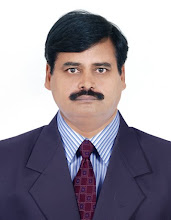Dear All
In continuation to the earlier postings made on the key issue of WOMEN Empowerment, RBVRRR Women College is going to Organize Two Day National Seminar during Sept 2013.
In this direction, i have already submitted the Abstract and Full Paper and the first part is pasted below for information as:
.........................................................
EMPOWERMENT
OF WOMEN
HAVING
CHILDREN WITH SPECIAL NEEDS – AN INCLUSIVE MODEL
Lakshmi
Narayana N
Director
Geo Rehabilitation Centre
Hyderabad.
E-mail: grcnln@gmail.com
ABSTRACT
Key
Words: Disability,
Poverty, Access, Rehabilitation, Prevention, Empowerment, Inclusion,
Sustainability, Quality of Life.
The
women having children with special needs do face several barriers both socially
and economically and thus limits their carrier opportunities. The presence of
children with disability changes the family environment significantly and
particularly the mothers as they will be attached with stigma. Disability added
with gender, poverty, disasters and environmental degradation subjects women
for complex vulnerabilities and gets affected both socially and economically. This
threatens their health, equality, dignity, safety, protection and further
lowers their quality of life with instability and insecurity. In spite of
several acts and policies, lack of effective systems for implementation and
utilization limits the benefits to the targeted groups. To overcome from such complex environment, women
empowerment is the best option for achieving the sustainability of the self, family
as well as the nation. In view of this, Millennium Developmental Goals and
Incheon Strategy promotes for the gender equality and women empowerment. The
women having children with disability need special attention in general and
particularly living in the rural villages. The study has specific objectives
starting from the stage of creation of awareness, advocacy, identification,
assessment, interventions, education, training, rehabilitation, livelihoods, inclusive
development and empowerment both for the children with disability and their
mothers. The developed model works for the inclusive development as an
empowerment matching to the needs, skills and vulnerabilities of the targeted
groups. This dual mode of empowerment has an added advantage of addressing the
challenges of self and family. This process has added advantage of creating
barrier free environment and disability free community for minimizing the
impact of disability on the development. Among the methodologies adopted priority
has been given for the education and vocational trainings with enhances
employability. The process of forming self help groups has created better
opportunities along with their children’s social security which answers their long
unanswered question that “what will happen to child after us?”. The channels adopted during this process
include the combination of institutional based, home based and community based
with the effective utilization of local resources. The paper presents the
process of empowerment disseminated through the selected civil societies
working for disability rehabilitation covering parts of Andhra Pradesh. The study
covers 185 women who could overcome
their challenges and able to be part of the inclusive community leading
improved quality of life with better sustainability. Majority of them got
associated with disability rehabilitation by way of professionals or service
providers and further able to reach several such women and children effectively
with better acceptance and participation. The model is simple, flexible,
scalable, replicable and sustainable and adaptable for the given environment.
.............................................
Looking forward...
All the Best.
